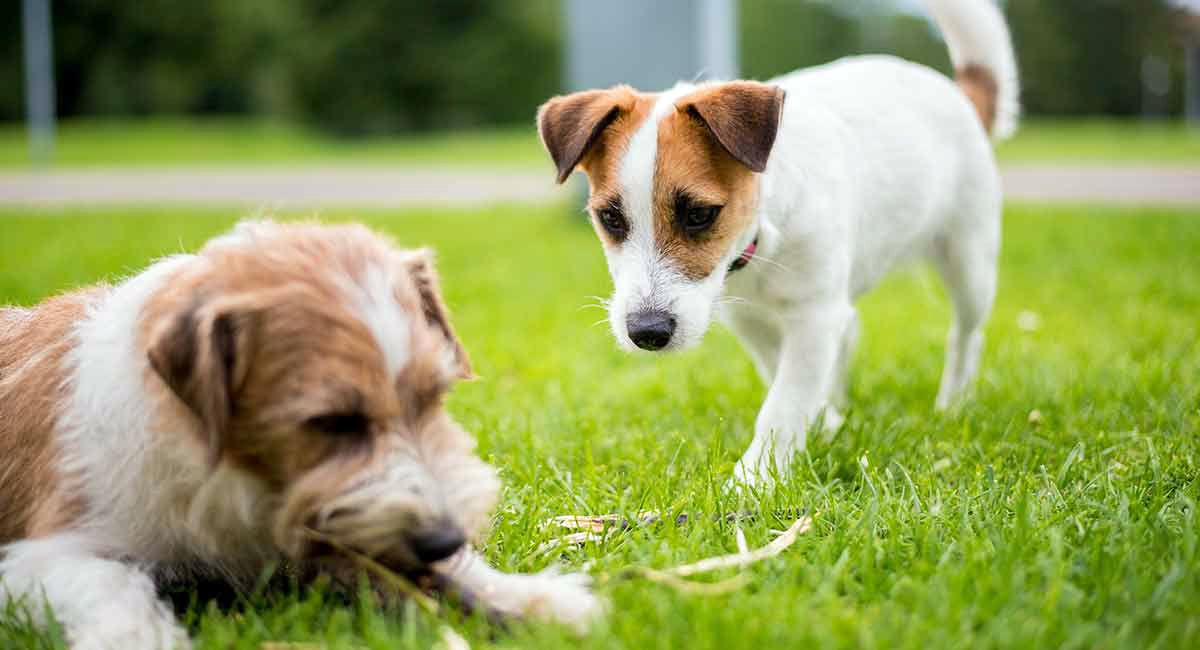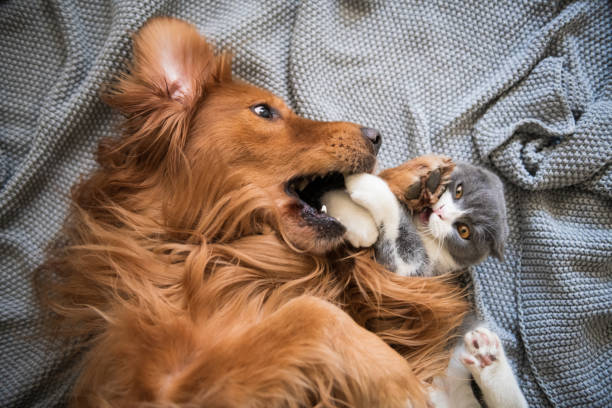Yes, Your Dog Can Be Jealous!
Psychologists have studied dog behavior and discovered unequivocally that dogs become jealous. Dogs do feel envy, whether it's human-style jealousy or an offshoot of deeply entrenched dog behaviors like resource guarding or redirected excitement.
Can Dogs Get Jealous?
In summary, dogs experience envy, and their sensations are comparable to those experienced by humans.
You may be able to deduce some of your dog's emotions, such as happiness or sadness, from their body language. Jealousy has traditionally been considered a complicated emotion with overtones of various other sensations, and it is influenced by experience in human psychology. Researchers from all across the world have shown that dogs experience envy.
There are various theories about where envy comes from. According to some psychologists, jealousy is a survival instinct. Siblings battle for resources, and romantic partners protect their partners from ensuring their line's survival. Other experts believe societal factors are at work, with specific cultures or households fostering jealousy.
This discussion rages on in the world of dogs as well. Some researchers believe that jealousy is a natural trait in some dogs (from birth). Others believe that a dog's surroundings and interactions with pet parents encourage jealously.
Are some dog breeds more envious than others?
Jealousy can affect any dog. While some breeds are more prone to separation anxiety or battle with the impulse to guard their pet parent as if they were a possession, jealousy does not discriminate. There is no current peer-reviewed research that suggests that particular dog breeds are more jealous than others.
Characteristics of a Jealous Dog
Some jealousy indicators in dogs are evident, while others are more subtle. The following are examples of signs that your dog is jealous:
- Whining when you should be focusing on another pet or person.
- Bumping into your leg, forcing their body on you or attempting to get near to you When you offer someone affection, you can't help but growl.
- Putting yourself in the way of another pet or person
- Going to the bathroom in a public place (or not on the pee pad if they use one indoors)
- Barking, playing tricks, or indulging in other attention-seeking behaviors are all examples of attention-seeking behaviors.
Why Do Dogs Get Jealous?
A dog's jealousy can be triggered by various scenarios, the most common when your focus is diverted elsewhere. The following are some of the most common causes of dog jealousy:
A New Pet Is Introduced

Bringing a new puppy or an adult dog home may cause your current dog to get envious. They may act aggressively toward the newcomer. Your dog may snarl at the new dog, guard your lap, or attempt to separate you from your new furry family member.
This may aggravate the situation if you express affection for your new dog. Aggression may be exacerbated if the newly adopted dog is of the same sex as the original dog or has opposing personalities.
Your dog may believe that their place in the family is in jeopardy and that the new dog will steal all of your love and attention away from them, leaving them with less.
A New Family member is Introduced.
New family members may trigger your dog's jealousy. When a new baby is born, your dog may feel as if all its attention has been divided or entirely redirected to the infant. When introducing your dog to a new lover, you may sense jealousy. Your dog may resent your adoration for your new spouse and may behave out.
Changes in the Domestic Setting
When your dog's environment undergoes a significant change, it might generate feelings of insecurity and jealousy. When you move to a new home, you're probably preoccupied with cleaning and packing all your belongings. Your dog may be concerned since they don't understand why things are changing and are worried about your distracted attention.
They may be envious that your attention is distracted by other tasks and that their function in your life may change. Routine adjustments, such as changing your job schedule or returning to school after the summer, can sometimes cause feelings of upset and worry.
Being the Owner of a New Pet in Your House
When you adopt a new dog, you may find that they become jealous very quickly after bringing them home. It can be difficult to find a new permanent home. A recently adopted dog may develop jealousy because they desire your attention, contact, and voice as a source of solace during this time of change. They may also believe that you'll replace them with another dog if you pay attention to them, and they'll be evicted from their new home.
Interaction Between a You and Another Pet

RavenaJuly/Shutterstock
Jealous dogs try to keep their pet parent from paying attention to another animal. While some dogs are only envious if they believe their bond with you is in jeopardy, others are less secure and grow envious of all people and animals.
Dogs who are envious of other canines
Canines can be envious of one another, but why do some dogs display more jealously than others? Researchers from the University of California demonstrated jealousy in dogs when their pet owners lavished care on inanimate, realistic-looking toy dogs that growled, whined, and wagged their tails in one fascinating study.
In the study, three-quarters of the dogs pressed up against their pet parent, sought to obstruct their pet parent's access to the stuffed animal, or snarled when their pet parents spoke sweetly to it and patted it.
So, how can you know if your dog will be envious of a new puppy or dog? If your dog shows jealousy when you go for walks with other dogs, alternatively, when friends or family members bring their dogs over to your place, it may cause problems too.
Is it possible for some dogs to be jealous of cats?

Dogs can be jealous of cats since they are a potential source of rivalry for a pet parent's affection. This may be worsened when cats are given privileges that dogs are not, such as being permitted to go up on the bed, couch, or even the counter. Your dog may perceive your cat as taking affection and attention that should be devoted to them.
How to Deal with Jealous Dogs?
Jealousy can be cute at first, but it can quickly become a problem. Allowing a dog's envy to take root in their lives is a recipe for disaster; they may bite little children, house soiling may become unhygienic and costly to handle, and genuine anxiety problems may develop.
You may, however, make efforts to prevent jealousy from spiraling out of control.
Introducing a New Family Member or Dog
Make an effort to establish a friendly relationship with a new family member. When it comes to introductions, take it slow. Begin with an item of clothes or bedding that has the scent of a new pet or human on it. Allow for a brief first introduction, then gradually increase the length of time your dog is required to socialize with a new household member. Never leave your dog alone with a new pet or baby initially.
Remember to be gentle with your new cat when petting it and don't forget to give your dog a loving stroke. Your dog should be rewarded every time a new puppy is given a goodie. You might even discover that using this method encourages your dog to be more invested in the success of a new puppy's housetraining! Adult housetrained dogs can be great role models for new puppies who are still learning to live in a home.
When you're holding a new baby, cuddle your pet, allowing them to participate in the bonding process. When a new person comes into your home, give them treats so that your dog correlates their visit with positive sentiments. Your dog may even grow to enjoy seeing them and reciprocating your affection.
Taking Care of Your Dog's Envy
Don't encourage your dog's envious behavior. Taking your dog to dog obedience classes or removing potential stressors can sometimes assist. When your dog feels insecure and seeks advice, it may be beneficial to re-establish healthy communication and boundaries with him.
Look to seek help from your veterinarian, a licensed veterinary behaviorist, or a certified animal behaviorist if you're not getting the results you want at home or if your dog is battling with aggression to the point of attacking.








Comments